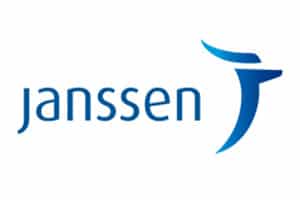 Janssen has won NICE backing for Imbruvica (ibrutinib) after the Institute reversed its initial negative guidance on the leukaemia drug’s use by the NHS in England.
Janssen has won NICE backing for Imbruvica (ibrutinib) after the Institute reversed its initial negative guidance on the leukaemia drug’s use by the NHS in England.
The cost-effectiveness watchdog has now approved Imbruvica as a second-line treatment for adults with chronic lymphocytic leukaemia (CLL), who have either the 17p deletion or TP53 mutation or for whom chemotherapy is not suitable.
The verdict is based on data from the RESONATE trials and a three-year follow-up study, one of which showed that in comparison with GlaxoSmithKline’s Arzerra (ofatumumab), the BTK inhibitor more than doubled the median progression-free survival time of 8.1 months.
As with Janssen’s initial approach to NICE at the appraisal consultation phase of the process, the company will discount Imbruvica’s list price via a patient access scheme, the details of which – as is usual practice – remain confidential.
NICE received sharp criticism over its appraisal process in March last year after it initially rejected Imbruvica due to “numerous uncertainties in the evidence base and economic modeling”.
However, the UK now joins the 43 countries worldwide – including 27 European nations and the US – where Imbruvica is routinely available as a CLL treatment.
Janssen UK’s director of health economics, market access and reimbursement Jennifer Lee, said: “This is very welcome news for patients with CLL, who will now be entitled to routinely access ibrutinib on the NHS in England.
“Janssen is dedicated to ensuring that patients with blood cancer have access to the most effective and innovative therapies, and we keenly await a similar positive decision by NICE for patients with mantle cell lymphoma and Waldenström’s macroglobulinemia, who currently have limited treatment options available.”
NICE rejected Imbruvica for the treatment of Waldenström’s macroglobulinemia – a rare type of non-Hodgkin’s lymphoma – in October last year, citing a lack of cost-effectiveness evidence for patients where chemotherapy is not an option.




